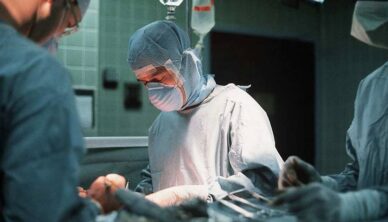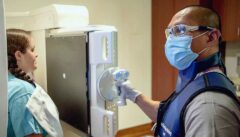Contents
Defining Facial Surgery

Facial surgery encompasses far more than cosmetic procedures. It plays a critical role in treating head, neck, or oral cancers, as well as congenital or acquired facial deformities. In fact, oral and maxillofacial surgeons frequently address trauma-related cases, which remain the most common reason for intervention.
The Vulnerable Facial Region
The face and head are complex and delicate structures, with their intricate bones and tissues making them particularly susceptible to injury. In the UK alone, around 7,000 individuals seek emergency care for facial injuries every week.
These injuries can arise from various causes, such as sports accidents, traffic collisions, or falls. In countries with less robust road safety, traffic accidents may be the leading cause. In the UK, however, falls are the primary cause, particularly in children, while adults may experience facial trauma from alcohol-related incidents, assaults, or high-risk activities.
For maxillofacial teams, the cause of the injury is important primarily for medical reasons, helping to assess the mechanism behind the trauma and guide appropriate care.
Comprehensive Care and Intervention
Facial injuries can be distressing in appearance, but they often involve deeper issues that require careful attention. It’s essential to assess potential spinal trauma, airway obstruction, and any damage to vision, smell, or hearing. If there is significant bleeding or discharge, the underlying cause must be identified and addressed.
Injuries to the teeth, jaw, or changes in facial sensation may indicate nerve damage, which requires thorough evaluation. The manner in which wounds are treated can significantly influence the aesthetic outcome, determining whether scarring is minimal or whether permanent facial deformity results.
The face plays a central role in essential functions such as breathing, eating, and communication, making its preservation and restoration crucial. For this reason, a maxillofacial consultant must consider not only the immediate injury but also the long-term impact on the patient’s quality of life.
Expertise and Care
Advanced surgical expertise is essential when treating facial conditions, particularly in areas such as microvascular surgery or tissue transplantation. Maxillofacial surgeons are uniquely qualified, holding both medical and dental degrees, which enable them to evaluate a range of medical imaging and plan the most effective treatment strategies.
Additionally, the face is an integral part of a person’s identity, so maxillofacial surgeons must possess strong communication skills and the ability to foster emotional resilience. This aspect of care is just as critical as the physical treatment itself.
Facial Surgery in Practice
Facial surgery is not only vital in addressing the life-threatening aspects of conditions such as cancer but also in restoring fundamental functions, such as the ability to eat, breathe, and sleep. While aesthetic considerations, as highlighted in cosmetic surgery, are important and should be respected, the medical objectives of facial surgery—restoring natural function and enhancing quality of life—remain paramount.
Both the medical and aesthetic aspects of facial surgery should be considered in a comprehensive approach to patient care. By doing so, maxillofacial surgeons help restore both form and function, improving patients’ lives in profound ways.
3 March 2024



